fold() does parallel processing so does not guarantee the processing order.
where as foldLeft and foldRight process the items in sequentially for left to right (in case of foldLeft) or right to left (in case of foldRight)
Examples of sum the list -
val numList = List(1, 2, 3, 4, 5)
val r1 = numList.par.fold(0)((acc, value) => {
println("adding accumulator=" + acc + ", value=" + value + " => " + (acc + value))
acc + value
})
println("fold(): " + r1)
println("#######################")
/*
* You can see from the output that,
* fold process the elements of parallel collection in parallel
* So it is parallel not linear operation.
*
* adding accumulator=0, value=4 => 4
* adding accumulator=0, value=3 => 3
* adding accumulator=0, value=1 => 1
* adding accumulator=0, value=5 => 5
* adding accumulator=4, value=5 => 9
* adding accumulator=0, value=2 => 2
* adding accumulator=3, value=9 => 12
* adding accumulator=1, value=2 => 3
* adding accumulator=3, value=12 => 15
* fold(): 15
*/
val r2 = numList.par.foldLeft(0)((acc, value) => {
println("adding accumulator=" + acc + ", value=" + value + " => " + (acc + value))
acc + value
})
println("foldLeft(): " + r2)
println("#######################")
/*
* You can see that foldLeft
* picks elements from left to right.
* It means foldLeft does sequence operation
*
* adding accumulator=0, value=1 => 1
* adding accumulator=1, value=2 => 3
* adding accumulator=3, value=3 => 6
* adding accumulator=6, value=4 => 10
* adding accumulator=10, value=5 => 15
* foldLeft(): 15
* #######################
*/
// --> Note in foldRight second arguments is accumulated one.
val r3 = numList.par.foldRight(0)((value, acc) => {
println("adding value=" + value + ", acc=" + acc + " => " + (value + acc))
acc + value
})
println("foldRight(): " + r3)
println("#######################")
/*
* You can see that foldRight
* picks elements from right to left.
* It means foldRight does sequence operation.
*
* adding value=5, acc=0 => 5
* adding value=4, acc=5 => 9
* adding value=3, acc=9 => 12
* adding value=2, acc=12 => 14
* adding value=1, acc=14 => 15
* foldRight(): 15
* #######################
*/
